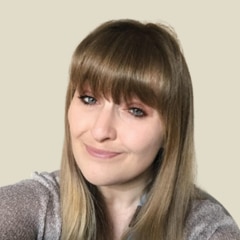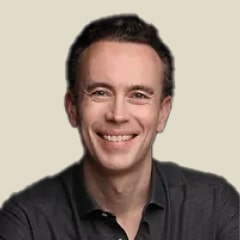Recovery starts with Speeking.
Your Clinical Support Team

Dr Olivia Collier
Chief Clinical Lead | Doctorate in Clinical Psychology (PhD)
Dr. Olivia Collier is an HCPC-registered Clinical Psychologist with extensive experience in NHS services and mental health research.
She completed her clinical training at the IoPPN and has worked within NHS services, focusing on serious mental health difficulties and supporting families. Olivia’s person-centred approach considers wider systems influencing well-being and helps individuals and families rediscover their strengths and resilience.

Dr Alex Bone
Doctorate in Clinical Psychology | PGCert in Family Therapy
Dr. Alex Bone, is a UK HCPC registered clinical psychologist. She specialises in family therapy, psychosis, and trauma/dissociation. Dr Alex has experience working with young adults experiencing psychosis, supervises research at the Salomons Institute, and conducts research on first-episode psychosis and Maladaptive Daydreaming (MD).

Dr Imogen Thynne
Doctorate in Clinical Psychology, DClinPsy
Dr. Imogen Thynne is a HCPC registered Clinical Psychologist, with experience across the NHS specialising in child and adolescent mental health. Imogen is dedicated to providing accessible, flexible, and innovative support that aligns with each person’s needs, strengths, and goals, to promote well-being. Alongside her clinical role, Imogen has conducted research into brief, online Acceptance and Commitment Therapy and self-harm, contributing to the development of effective digital psychological interventions.

Tamara Licht-Musso
Clinical and Counselling Psychologist
Tamara is an HCPC-accredited Clinical and Counselling Psychologist and a BPS-Chartered Clinical Psychologist. She works with children, young people, and adults, providing psychometric assessments, medico-legal reports, and therapeutic interventions rooted in DBT, CBT, and psychodynamic principles. Tamara has extensive experience in both NHS settings, including IAPT and CAMHS services, and private practice. She takes an open-minded, client-centred approach, tailoring therapy to meet each client’s unique needs as they navigate their therapeutic journey. Alongside her clinical work, Tamara has offered psychological duty of care for individuals appearing on television. She has also contributed to various magazines and news channels, providing expert commentary on mental health topics.

Adrienn Petho
Assistant Psychologist
Speek’s Clinical Advisory Board

Dr Peter Fonagy
OBE FMedSci FAcSS FBA PhD
Dr Peter Fonagy is the Professor of Contemporary Psychoanalysis and Developmental Science, Head of the Division of Psychology and Language Sciences at UCL, Programme Director for Mental Health at UCLPartners, and Chief Executive of The Anna Freud National Centre for Children and Families. He also consults for the Child and Family Program at Baylor College of Medicine and holds visiting professorships at Yale and Harvard Medical Schools.
His clinical and research interests include early attachment relationships, social cognition, borderline personality disorder, and violence. He co-developed mentalisation-based treatment, an innovative psychodynamic therapeutic approach. He has published over 600 scientific papers, 250 chapters, and 19 books.

Dr Shadi Shahnavaz
Family Psychotherapist
Dr. Shadi Shahnavaz is a UKCP-registered Systemic Therapist with over 25 years of experience working with adolescents, individuals, couples, and families. She worked in the NHS for 10 years and is now at the Anna Freud Center, part of the Contact and Residence Dispute Team, and teaching staff.Dr. Shahnavaz specializes in trauma, loss, and multicultural families and has extensive experience working with adolescents. She is trained in EMDR, trauma work, attachment, parenting, and is a ‘Circle of Security’ facilitator. She is a member of the Association of Family Therapy, European Family Therapy Association, and European Association of Psychotherapy. Dr. Shahnavaz speaks French, Farsi, and Swedish fluently.

Dr. Andre Morris
Consultant Advisor – Dialectical Behaviour Therapy
Is an experienced Clinical Psychologist with over 17 years of NHS and private practice experience, specialising in DBT, emotion dys-regulation, and self-harm. He holds a senior role at the Maudsley Hospital’s national therapy programme and has extensive experience treating adolescents, adults, and families. As Speek’s DBT expert consultant, he supports the development of evidence-based interventions, guiding our approach to structured DBT-informed support for families and young people.

Dr Charlotte Maxwell
Consultant Advisor on Racial trauma and Neurodiversity
Charlotte is a Clinical and Community Psychologist, educator, and creative thinker, dedicated to advancing health equity through liberatory, creative, community centered practice that uses technology and innovation. With extensive experience in neurodivergence, racial trauma, and intersectional approaches, Charlotte blends systems-psychodynamic insights with participatory research methods to challenge structural inequalities and foster transformative change. Her work spans clinical practice, teaching, and research, with a focus on supporting individuals who are neurodivergent and/or with significant communication needs. Charlotte’s passion for the decolonisation of healthcare systems and her commitment to anti-oppressive, liberatory approaches inform her goal of co-creating inclusive solutions that empower marginalised communities. As a creative professional with a background in the arts and communication, Charlotte also explores the intersection of psychology and storytelling, engaging diverse audiences and inspiring systemic change.

Dr Iain Jordan
MB BCh BaO MSc MRCPI MRCPsych Consultant Psychiatrist
Dr. Iain Jordan, a seasoned doctor in medicine and psychiatry, specialises in complexity science and healthcare informatics, with over 20 years of service in public health across the UK and Ireland. As a liaison consultant psychiatrist at Oxford University Hospital NHS Foundations Trust and Honorary Senior Lecturer at The University of Oxford, he advocates for holistic health solutions, democratising psychological strategies for all.
Speek’s Safety Team

Becky Dawson
Safeguarding Lead
Becky has worked in education for over 20 years. Starting her career as a drama teacher in Bedfordshire she worked in a pastoral role, as a Safeguarding Lead and then became a Special Educational Needs co-ordinator. She then went on to work for the London Borough of Newham working with primary and secondary schools to develop a Whole School Approach to mental health and wellbeing for students and staff.
Becky now runs her own business delivering training for a range of different people with a focus on mental health and wellbeing alongside working directly with young people who are facing challenges with their mental health.

Marcus Stow, OBE, MStJ, RGN
Clinical Digital Safety Officer
Marcus Stow is a Humanitarian Clinical Advisor at DronePrep, joining in October 2022. He has been a Non-Executive Director at The Royal College of Surgeons of England since July 2022 and a Humanitarian Advisor at the British Red Cross since March 2022. Marcus has held multiple advisory and mentorship roles, including as a Steering Group member at The iCrowd since February 2021 and an Advisor at CardMedic since April 2021.
He served in the Royal Air Force (RAF) as a Nursing Officer from August 2002 to December 2022, holding leadership roles such as Commanding Officer Tactical Medical Wing and Deputy Officer Commanding Nursing. Marcus earned a BSc in Nursing Studies from King’s College London (1995–1999).